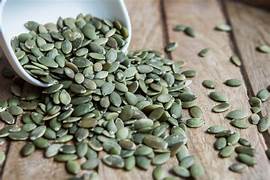Pumpkin seeds are widely recognized for their nutritional value, containing high levels of protein, essential minerals, antioxidants, zinc, iron, omega-3 fatty acids, and vitamin A. While they offer significant health benefits, excessive consumption can lead to adverse effects.
Health Benefits of Pumpkin Seeds
– Nutrient-Rich: Packed with magnesium, potassium, and omega-3 fatty acids, pumpkin seeds support overall health.
– Digestive Support:; High in dietary fiber, they aid digestion and promote gut health when consumed in moderation.
– Protein Boost: The seeds serve as an excellent source of plant-based protein, making them an ideal addition to a balanced diet.
Potential Risks of Overconsumption
1. Weight Gain:
Overeating pumpkin seeds can contribute to weight gain due to their high-calorie content.
2. Blood Pressure Concerns:
Excessive intake of magnesium and potassium from these seeds may lead to elevated blood pressure. Individuals with hypertension should exercise caution.
3. Digestive Issues:
High fiber content can cause bloating, gas, or stomach discomfort if consumed in large quantities. The fatty oils in the seeds may also lead to nausea or headaches.
4. Allergic Reactions:
In rare cases, pumpkin seeds may trigger allergies, leading to throat irritation, coughing, or headaches.
ALSO READ: Allu Arjun’s Pushpa 2 Creates Frenzy, Sreeleela’s “Kissik” Sets Screens Ablaze
Consumption Guidelines
– Optimal Timing: Consuming pumpkin seeds in the morning as a part of breakfast or as a light snack can be beneficial, providing a healthy dose of protein and energy to start the day.
– Moderation is Key: Incorporating them into the diet in controlled portions ensures maximum benefits without side effects.
Disclaimer: This article is based on publicly available information and has not been independently verified. For specific health advice or dietary concerns, consult a healthcare professional.






